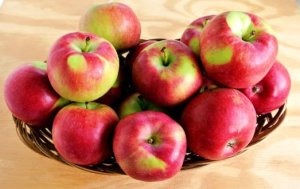Writing books are replete with exercises meant to jumpstart your creativity. Even authors who write their memoirs can’t seem to resist mentioning the exercise that helped them. Whether the exercise is meant to focus your concentration or crowbar you out of a slump, I find writing exercises to be, well . . . tedious and annoying.
I remember a daily exercise where for one minute I wrote down the first ten things that came to mind. Then, no matter what the third thing was (or maybe it was the seventh), I spent another ten minutes writing about it.
I don’t know about you, but first thing in the morning my mind is creating a to-do list for the rest of the day, sometimes the week. My list often included thoughts such as take something out of the freezer for dinner, clean the litter box, and wash a load of jeans. Not exactly ideas worthy of ten minutes elucidation.
Needless to say, and yet I’m going to, I quickly tired of the exercise and abandoned it faster than a Spanx bodysuit in the women’s dressing room.
Now this isn’t to say that you shouldn’t try an exercise or two, and maybe they really have worked for someone, in which case I’d love to hear from you about the exercise and who suggested it. Don’t forget to include your results.
 I have chosen a different approach to keep myself writing while larger works, like my novels and blog posts, swirl about my mind waiting to crystalize into something I can put on the page. For example, yesterday I left the laptop, pencils, and notebooks behind to spend the day with my grandbaby, Jacob. My writing flourished from the exercise.
I have chosen a different approach to keep myself writing while larger works, like my novels and blog posts, swirl about my mind waiting to crystalize into something I can put on the page. For example, yesterday I left the laptop, pencils, and notebooks behind to spend the day with my grandbaby, Jacob. My writing flourished from the exercise.
I started by creating memories that don’t have to be edited because they’re already perfect, and now I can accurately describe a four-year-old’s laughter. It is pure sunshine. Then there are his little hands, more delicate than a bird’s wing and softer than a baby rabbit. Don’t forget his rubber band arms that he throws around my neck and noodle legs that he uses to run like a frisky colt.
And then there are his eyes, the color of melted chocolate; his eyebrows, pencil-thin and able to move independently of each other to express an array of emotions; or his knees, dappled blue and purple with a plethora of bruises.
His voice babbles like a little stream and makes about as much sense, his toes look like pink corn niblets, and his sweet head smells like warm grass.
So you see, I did write yesterday. I worked on description because there was way too much dialog to capture and most of it was delivered between fits of giggles and squealing. We do love a good game of tickle. Maybe I’ll recall this and use it in a story someday, maybe not. It really doesn’t matter as long as I keep at my writing.
Today, when Jacob is en route to his home in another state, I’ll return to the laptop, pencils, and notebooks. If I’m lucky, what I write then will be as perfect as what I wrote when I was with him.













